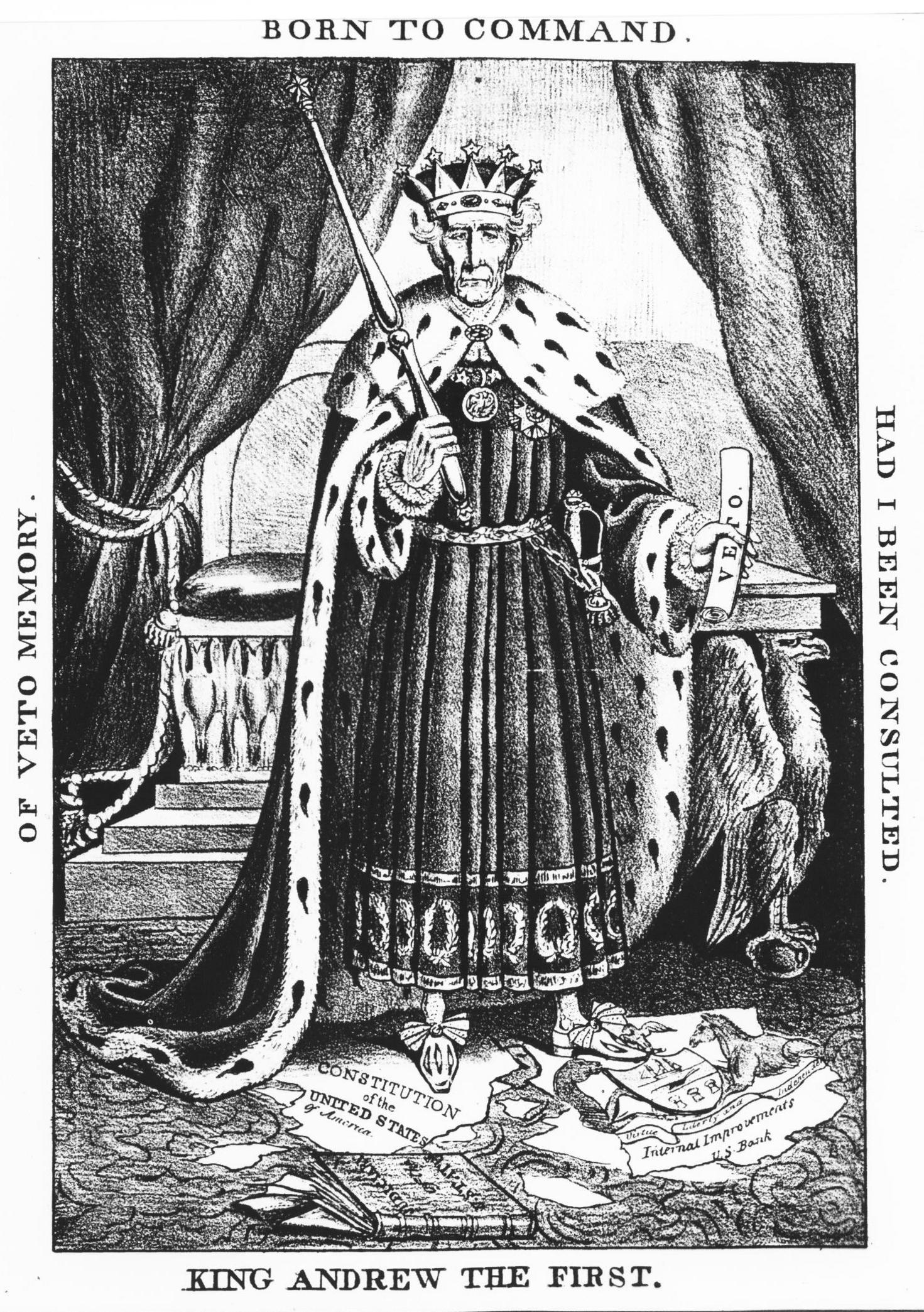Won the Election of 1824 by making a “corrupt bargain”
John Quincy Adams
The deal that John Quincy Adams made to defeat Andrew Jackson in the Election of 1824
Corrupt Bargain
This 1830 act called for the government to negotiate treaties that would require Native Americans to relocate west
Indian Removal Act
An increase in the price of goods and services and a decrease in the value of money
Inflation
A tariff is
A tax on imported goods
The “common man’s” president, also known as "Old Hickory"
Andrew Jackson
Elected officials reward their supporters with government jobs
Spoils System
White settlers wanted the land of the Cherokees because
Gold was found on their land and it was good for growing cotton
Jackson pulled the money out of the national bank and placed it into smaller state banks
Pet Banks
Fill in the blank:
The South felt the tariff of 1828 _____ them and ______ the North.
hurt and helped
Secession is
Withdrawal or leaving the Union
What did Jackson do with the bill passed by Congress to renew the Second Bank of the United States Charter?
Vetoed it.
The tragic journey of the Cherokee people from their homeland to Indian Territory between 1838 and 1839; thousands of Cherokee died
Trail of Tears

This cartoon is a result of
Vetoing the bank charter.
What is the Tariff Act of 1928 also known as
Tariff of Abominations
The right of a state to reject a federal law it considers unconstitutional
Doctrine of Nullification
Jackson’s presidency can best be described as
increased political power of the common man
The Native Americans approximately walked this many miles.
1200 Miles
Unconstitutional
As a result from states wanting nullify the Federal Government, Andrew Jackson passed
The Force Bill
the idea of spreading political power to all people, thereby ensuring majority rule
Jacksonian Democracy
Jackson hated this establishment because it favored the wealthy and hurt the poor.
The National Bank
In Worcester v. Georgia (1830), the Supreme Court decided
The Cherokee were able to remain on their land
The President of the National Bank
The idea of State's Rights eventually leads to
The Civil War